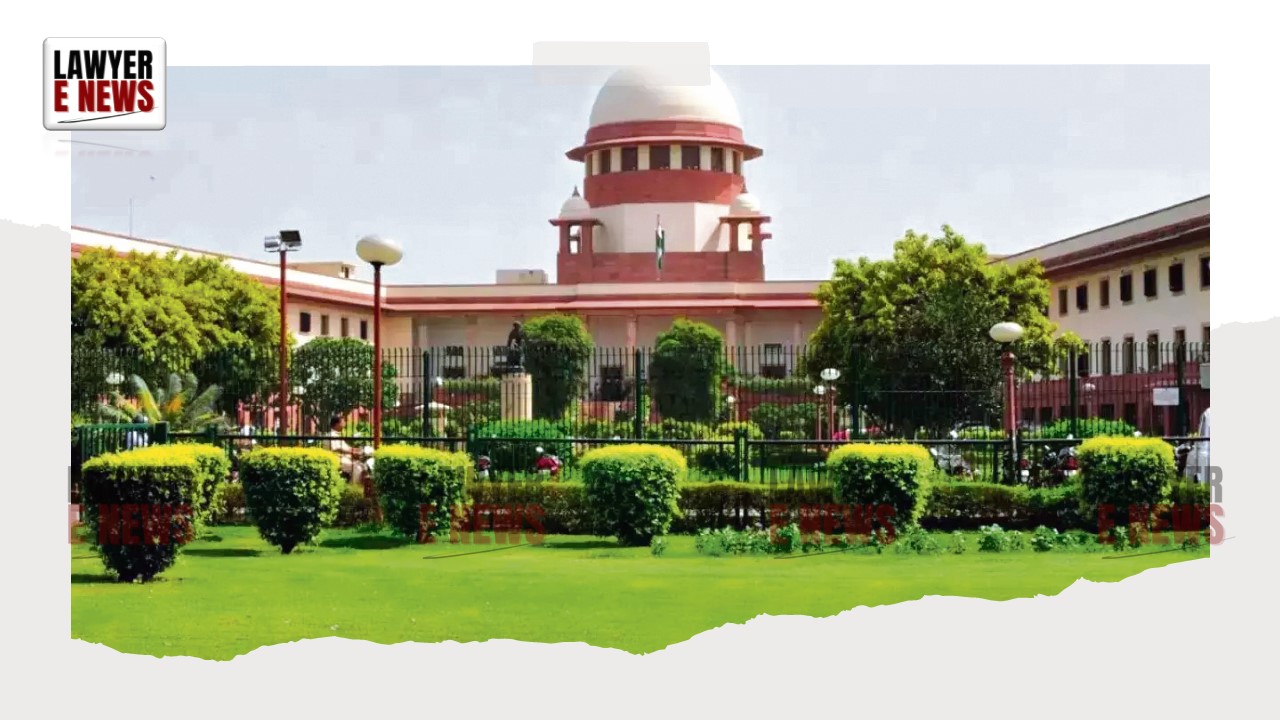-
by Admin
16 February 2026 1:47 PM



Adjudicating Authority, Not High Courts, Must Decide Personal Guarantor’s Liability- Supreme Court Reaffirms IBC Framework, Restores Insolvency Proceedings Against Personal Guarantor. In a significant judgment reinforcing the integrity of the Insolvency and Bankruptcy Code, 2016 (IBC), the Supreme Court on February 20, 2025, held that High Courts cannot invoke their writ jurisdiction under Article 226 to prematurely quash personal insolvency proceedings before the Adjudicating Authority has had the opportunity to assess the debt and examine the Resolution Professional’s report.
Setting aside the Karnataka High Court’s order in Bank of Baroda v. Farooq Ali Khan & Ors., the Supreme Court declared: "The IBC provides a well-structured statutory process for adjudicating personal insolvency disputes. The High Court's interference, even before the Adjudicating Authority could perform its statutory function, was unwarranted and preemptive."
The Court restored the insolvency proceedings before the National Company Law Tribunal (NCLT), Bengaluru, directing it to proceed from the stage of appointing the Resolution Professional and dispose of the case expeditiously.
Supreme Court Holds High Court's Intervention Unwarranted, Restores NCLT Proceedings
The case arose from the initiation of personal insolvency proceedings against Farooq Ali Khan, a promoter and director of Associate Décor Limited, which had defaulted on substantial loans taken from a consortium of banks, including Bank of Baroda.
Khan had executed a personal guarantee on July 10, 2014, securing these loans. Following the corporate debtor’s default, the bank invoked the guarantee on August 11, 2020, demanding Rs. 244 crores. In response, Khan proposed a Rs. 25 crore settlement as full and final payment.
Bank of Baroda subsequently filed an application under Section 95(1) of the IBC to initiate personal insolvency proceedings against Khan. The NCLT appointed a Resolution Professional (RP) on February 16, 2024, directing him to examine the application and submit a report under Section 99 of the IBC.
Khan, however, challenged this before the Karnataka High Court, arguing that his liability as a personal guarantor had been waived. The High Court quashed the insolvency proceedings, holding that the guarantee was unenforceable. Aggrieved by this decision, Bank of Baroda approached the Supreme Court.
"IBC is a Self-Contained Code—High Courts Must Not Interfere Prematurely"
The Supreme Court strongly criticized the High Court’s intervention, stating: "The IBC provides a complete statutory framework to determine the existence of debt and the liability of a personal guarantor. The Karnataka High Court overstepped its jurisdiction by interfering before the Resolution Professional could complete his examination."
Emphasizing that the appointment of the Resolution Professional is a mandatory first step under Section 97 of the IBC, the Court held: "The Resolution Professional plays a critical role in collating financial information, determining the status of the debt, and submitting a report under Section 99. The Adjudicating Authority then evaluates this report under Section 100. The High Court's interference, even before this statutory process could unfold, was legally unsustainable."
Referring to its decision in Dilip B. Jiwrajka v. Union of India (2024) 5 SCC 435, the Court reiterated: "No judicial determination takes place until the Adjudicating Authority exercises jurisdiction under Section 100. The report of the Resolution Professional is merely recommendatory and does not bind the Adjudicating Authority."
The Supreme Court condemned the High Court’s preemptive ruling, stating: "The High Court effectively usurped the role of both the Resolution Professional and the Adjudicating Authority. It took upon itself the task of deciding the existence of debt—a mixed question of law and fact that falls exclusively within the domain of the NCLT under the IBC."
"High Court's Role Under Article 226 is Not to Bypass the IBC Mechanism"
The Supreme Court strongly reaffirmed the limitations of judicial review under Article 226 in IBC matters, holding that High Courts must not interfere unless there is a clear lack of jurisdiction or manifest illegality.
Referring to United Bank of India v. Satyawati Tondon (2010) 8 SCC 110, the Court emphasized: "When Parliament has provided a specialized tribunal to decide insolvency matters, the High Court should not assume jurisdiction over factual disputes that the IBC entrusts to the Adjudicating Authority."
The Court further warned against judicial interference that disrupts the statutory framework, quoting its ruling in South Indian Bank Ltd. v. Naveen Mathew Philip, 2023 SCC OnLine SC 435: "IBC is a complete code in itself. High Courts must not intervene unless there is manifest illegality or jurisdictional error."
Supreme Court Restores NCLT Proceedings, Warns Against Premature Judicial Intervention
The Supreme Court’s judgment firmly upholds the IBC’s statutory framework and reiterates that High Courts should not prematurely quash insolvency proceedings under the guise of judicial review.
"The statutory adjudication process under IBC must take precedence over premature judicial intervention. The High Court erred in quashing the insolvency proceedings before the Resolution Professional could even submit his report," the Court concluded.
With this ruling, the Supreme Court has sent a clear message against judicial overreach in insolvency matters, ensuring that the IBC remains the primary forum for resolving personal insolvency disputes.
Date of Decision: 20 February 2025
